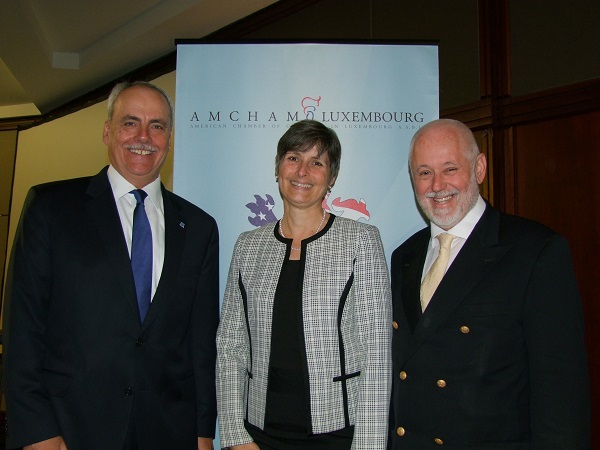
Mike Lyden spent 33 years in the US Navy before arriving in Luxembourg to head up the NSPA, the NATO Supplies and Procurement Agency, as General Manager last year.
He explained that NATO is split between the military, civilian and agencies, with NSPA within the last grouping. NATO has 50+ partners, including Ukraine and Australia, and is currently focusing on partner relations. NSPA has gone from a local agency to a global support agency with a USD 2.5 billion turnover, with the expectation to rise to USD 3-4 billion within a few years.
The procurement process is forward-leading and automatic, with around 10,000 suppliers on their books. They have developed a Capability Portfolio which addresses 5 areas which he described briefly in turn: systems acquisition and lifecycle support; support to operations; logistics services and project management; strategic transportation and storage; and fuel management.
For each of the 5 areas they have a nucleus of talent: they currently employ around 1,200 staff of which around 900 are based in Capellen. He explained that the NPSA can be best described as a contract integrator, as a "middle-man" between their customers and suppliers.
As the NSPA is very streamlined in its processes, when they take over a supply/procurement contract, they invariably provide savings of around 30% for customers. They also advocate transparency, including publishing details of all contracts awarded.
On Monday, AMCHAM held an ABAL Luncheon at the Double-Tree by Hilton in Luxembourg-Dommeldange, with Mike Lyden as guest speaker on explaining how the NSPA operates. Paul Schonenberg, AMCHAM Chairman, introduced the topic as one in which NPSA (formerly NAMSA), the NATO Supply Agency in Capellen plays a leading role from its Luxembourg base where it is one of the world's largest logistics operator.
Photo by Geoff Thompson (L-R): Mike Lyden (NSPA); Alison Shorter-Lawrence (Chargé d'Affaires at the US Embassy in Luxembourg); Paul Schonenberg (AMCHAM)








